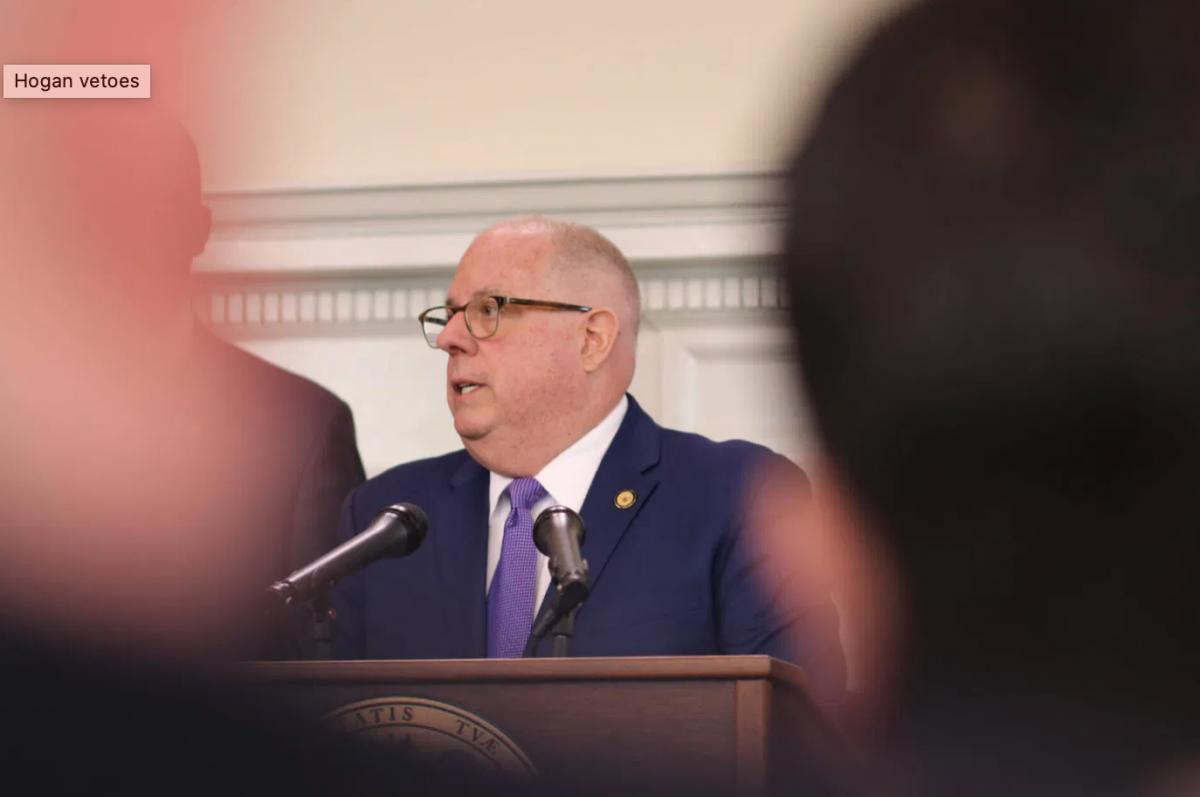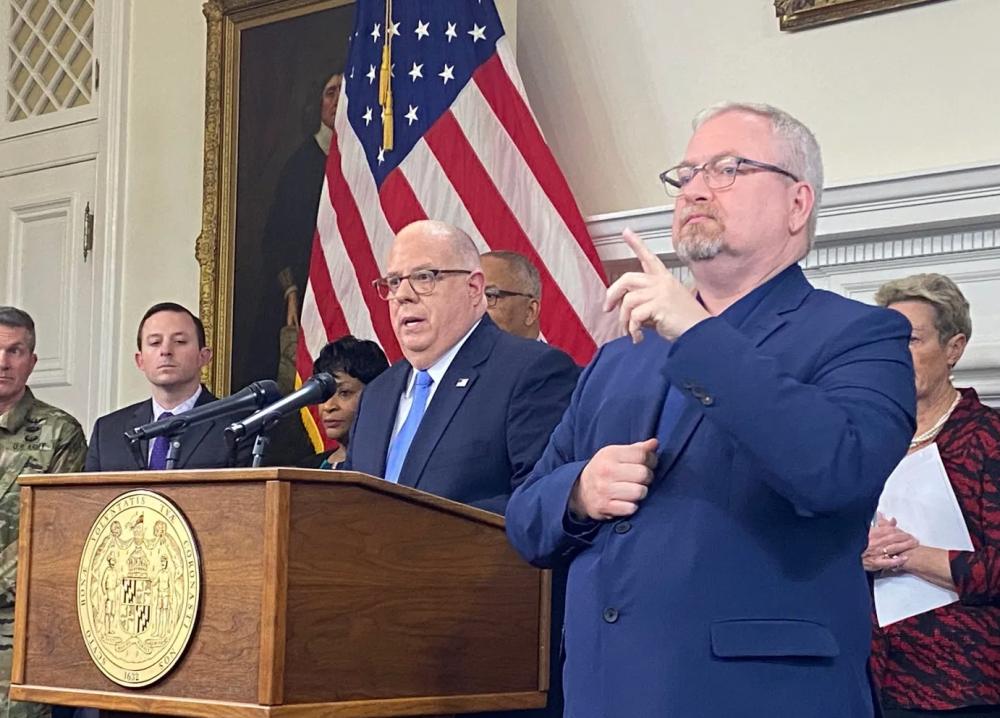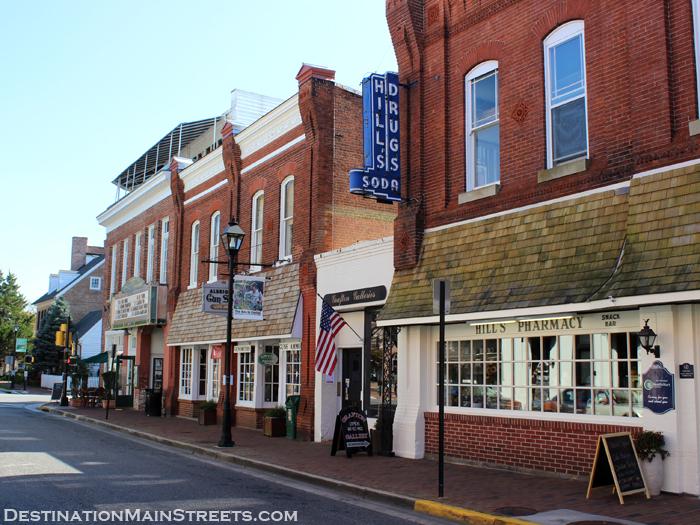Gov. Lawrence J. Hogan Jr. (R) on Wednesday pulled $250 million from the state’s rainy day fund, intending to keep small businesses open during the COVID-19 pandemic through help with rent, employee salaries, upgrades and other efforts.
During a State House press conference, Hogan said the state’s economic and health recoveries depend on everyday Marylanders continuing to follow safety guidance, while he also pushed some of Maryland’s larger counties to reopen businesses further.
The governor also chided the rate that smaller counties have spent federal stimulus money; only about one-third of $362 million in CARES Act funding directed to 19 counties in the state has been spent so far, with a deadline of Dec. 31.
Hogan said the new state funding would also be required to be spent by the end of the year, and suggested that counties use their unspent federal stimulus money to create matching grants.
“I have directed our teams in each agency to ensure that this much-needed funding gets out the door to our struggling citizens and small businesses as quickly as possible,” Hogan said.
The governor’s relief plan announced Wednesday includes:
- $50 million for the Maryland Small Business COVID-19 Relief Grant Fund; the new infusion brings total state spending for fund to $145 million since March and will clear a backlog of all applications that have been submitted.
- $50 million in new relief for restaurants, which can be used to help them buy improvements including HVAC filtration, outdoor dining amenities, technology upgrades to help with carryout and delivery orders, protective equipment for employees, or to help with rent. This money will go to counties, which will distribute it to qualifying restaurants.
- $20 million for grants from the Maryland Department of Housing and Community Development to help businesses and entertainment venues in the state’s “Main Street Maryland” and “Baltimore Main Streets” programs.
- $20 million to the COVID-19 Layoff Aversion Fund. This program already disbursed $20 million through the Maryland Department of Labor, and has saved 9,000 jobs, Hogan said.
- Additional funding includes $5 million to the Maryland Small Business Development Financing Authority, $2 million for local tourism efforts, and $3 million for arts organizations and artists.
Another $100 million is set aside as an “emergency response fund,” which would allow the state to immediately direct money to areas of economic concern in the future, Hogan said.
The spending will be “critical to the thousands of struggling restaurants, small businesses and main streets across the state who are attempting to weather this crisis,” the governor said.
“Equally important to their survival will be all 24 jurisdictions finally moving into stage three of the Maryland strong roadmap to recovery plan,” Hogan said. State law allows counties to reopen at a pace slower than the statewide recommendations, depending on local health concerns.
Some of Maryland’s larger jurisdictions, where COVID-19 case rates have been higher, continue to limit certain businesses, including indoor dining.
“They had particular situations on the ground that caused them to go a little slower, which they thought was prudent,” Hogan said. But now, he said he believes health metrics in the counties warrant wider reopening efforts.
“We’re trying to get the schools open, we’re trying to get the businesses open,” Hogan said.
Overall, Maryland’s economy is rebounding faster than other states, but more help is still needed for small businesses, Hogan said.
“Our economy is doing better than the country and most almost all the states in America, but it’s still really bad. It’s not it’s not a great situation for all these hardworking, struggling folks,” he said.
The governor continued to call on federal lawmakers to get moving on a second round of nationwide stimulus relief.
“We need both parties in Washington to stop playing politics to end the gridlock and to get this done for the American people,” Hogan said. “Our small business community and our struggling Marylanders who depend on them for their jobs cannot afford to wait any longer.”
Comptroller Peter V.R. Franchot (D), who has been instigating for a state-level small business stimulus, including at Wednesday’s Board of Public Works meeting chaired by Hogan, said after the announcement that the proposal was insufficient.
Franchot, a likely candidate for governor in 2022, has suggested an infusion of at least $500 million, either from 2020 surplus funds, the state’s rainy day fund, or through borrowing.
“Today’s announcement by Governor Hogan is a good start, but it’s simply not enough,” Franchot said. “Contrary to the Governor’s analysis of our fiscal posture, we are in a position to do more without taking another penny from the Rainy Day Fund.”
Franchot also noted that $100 million of Hogan’s proposal is not yet earmarked for relief.
“Just two years ago, the State of Maryland was willing to pony up $8.6 Billion to lure Amazon’s East Coast headquarters. Surely, we can do better than letting tens of thousands of small businesses, nonprofits, and Main Street communities fight over scraps,” Franchot said in a statement.
Hogan said during the press conference that his administration landed on the $250 million figure because it would leave the state’s rainy day fund with about $1 billion, which has been the state’s longtime recommended reserve level.
Hogan also cautioned Wednesday that the state is monitoring a small uptick in coronavirus-related hospitalizations in the past week and that small gatherings and parties continue to be the number one source of new cases in the state.
“We can’t let our guard down and we should remain vigilant ― even when we are in close contact with the people that we know and love,” Hogan said. “Outdoor activity continues to be much safer than indoor activity, and frequent hand washing remains a critically important tool. Following these simple guidelines will keep us firmly on the road to recovery and help us slow the spread, prevent the surge and keep Maryland open for business.”
By Danielle E. Gaines



